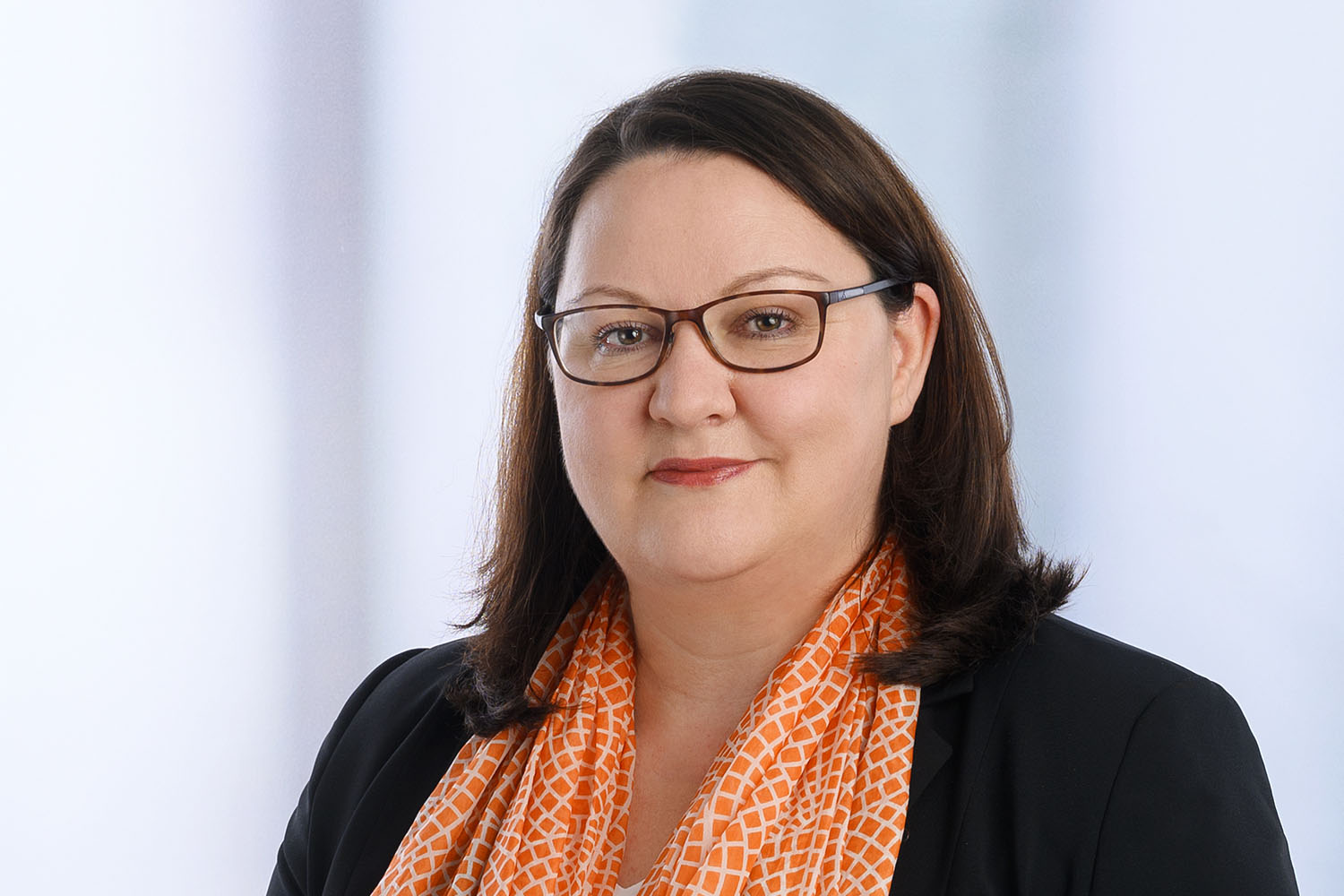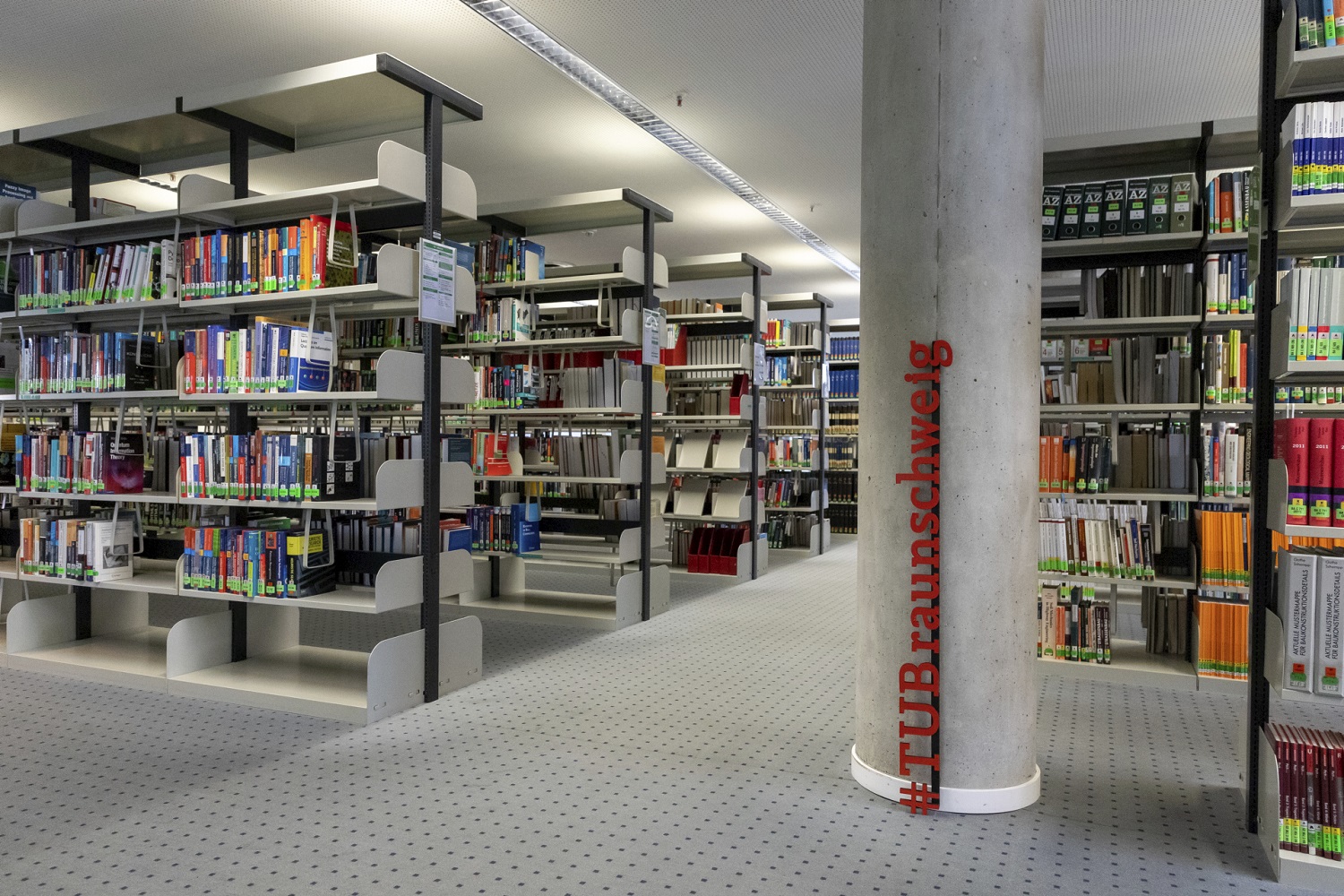Farewell to Katrin Stump Head of the University Library transfers to Dresden
Katrin Stump has been Executive Director of the University Library at Technische Universität Braunschweig since 2014. At the end of the month, she will leave Carolo-Wilhelmina to take up her new post as Director General of the Saxon State and University Library (SLUB) in Dresden on May 1, 2022.
“I am looking forward to my new job in my old home, because SLUB is one of the most innovative institutions of its kind with an excellent reputation. But I am definitely going to Dresden a bit teary eyed, because my years at TU Braunschweig were very happy and fulfilling. I am incredibly proud of the team at the University Library. It has been actively involved in shaping many changes and driving forward the digital transformation,” emphasizes Katrin Stump.

Katrin Stump, executive director of the University Library, is leaving TU Braunschweig to join the Saxon State and University Library (SLUB) in Dresden on May 1, 2022. Photo credit: Private
Together, they were able to establish flagship projects such as the Specialised Information Service Pharmacy, which is funded by the Deutsche Forschungsgesellschaft (DFG, German Research Foundation) and works closely with the Institute for Information Systems headed by Professor Wolf-Tilo Balke. The Specialised Information Service Pharmacy offers comprehensive access to pharmaceutical information resources to university pharmaceutical researchers and supports researchers with a tailored and specific range of services.
Great contribution to the digitization strategy of TU Braunschweig
“On behalf of the entire university management, we express our great appreciation to Ms. Stump for what she has achieved and thank her for her highly professional commitment to our university. We wish her every success in her new tasks in Dresden and look forward to future collaboration in other contexts,” says TU President Professor Angela Ittel on Katrin Stump’s departure.
In recent years, the head of the university library and her team have shown great commitment in strategically restructuring the University Library so that it could meet the requirements of modern librarianship, says Ittel: “In the process, she has not only significantly shaped and advanced the digitization of the University Library, but also contributed significantly to TU Braunschweig’s digitization strategy. Through the development and implementation of innovative services, the active conception of and participation in DFG-funded research projects – especially on the topics of open science, publication and research data management – as well as her involvement in national committees, Ms. Stump was able to increase the visibility of our university library far beyond Lower Saxony.”

“I am incredibly proud of the team at the University Library. It has been actively involved in shaping many changes and driving the digital transformation forward,” emphasizes outgoing Executive Director Katrin Stump. Photo credit: Kristina Rottig/TU Braunschweig
Open access, research-related services and digital media
During her time in Braunschweig, Katrin Stump and her team established open access publication services and research-related services to support researchers in digital publishing. Among other things, an open access publication fund was set up for this purpose in 2017. “The University Library offers advice and information on all aspects of open access as well as Creative Commons licenses. It is also involved in teaching digital skills such as information literacy at the university. As a research-supporting institution, we work close to research and teaching and can thus develop tailored offers,” explains Katrin Stump. In addition, the library has addressed the issue of research data management and established corresponding services. The library is currently working on developing a platform on which research data can be published – as an extension of the publication server, because the publication of primary data is playing an increasingly important role in science.
In recent years, the University Library has also massively expanded the supply of digital media for students and scientists. “Researchers in particular expect to have access to digital media around the clock and from any location. And textbooks can be used simultaneously by all students in digital form, so there is no longer a bottleneck,” says Katrin Stump.
